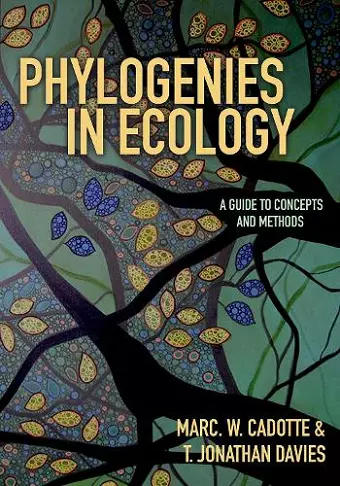Phylogenies in Ecology
A Guide to Concepts and Methods
Marc W Cadotte author T Jonathan Davies author
Format:Hardback
Publisher:Princeton University Press
Published:23rd Aug '16
Should be back in stock very soon

Phylogenies in Ecology is the first book to critically review the application of phylogenetic methods in ecology, and it serves as a primer to working ecologists and students of ecology wishing to understand these methods. This book demonstrates how phylogenetic information is transforming ecology by offering fresh ways to estimate the similarities and differences among species, and by providing deeper, evolutionary-based insights on species distributions, coexistence, and niche partitioning. Marc Cadotte and Jonathan Davies examine this emerging area's explosive growth, allowing for this new body of hypotheses testing. Cadotte and Davies systematically look at all the main areas of current ecophylogenetic methodology, testing, and inference. Each chapter of their book covers a unique topic, emphasizes key assumptions, and introduces the appropriate statistical methods and null models required for testing phylogenetically informed hypotheses. The applications presented throughout are supported and connected by examples relying on real-world data that have been analyzed using the open-source programming language, R. Showing how phylogenetic methods are shedding light on fundamental ecological questions related to species coexistence, conservation, and global change, Phylogenies in Ecology will interest anyone who thinks that evolution might be important in their data.
"Ecophylogenetics overlays knowledge of the origin of species with contemporary patterns found in the study of biological communities. To enhance understanding of this new synthesis, the authors provide not only data, but also the programming code (in the R language) so readers can test their comprehension... With 101 figures, 285 snippets of R language programming code, and a 43-entry glossary, this book is as much a how to guide as it is an introduction to this new approach."--Choice
ISBN: 9780691157689
Dimensions: unknown
Weight: 709g
264 pages